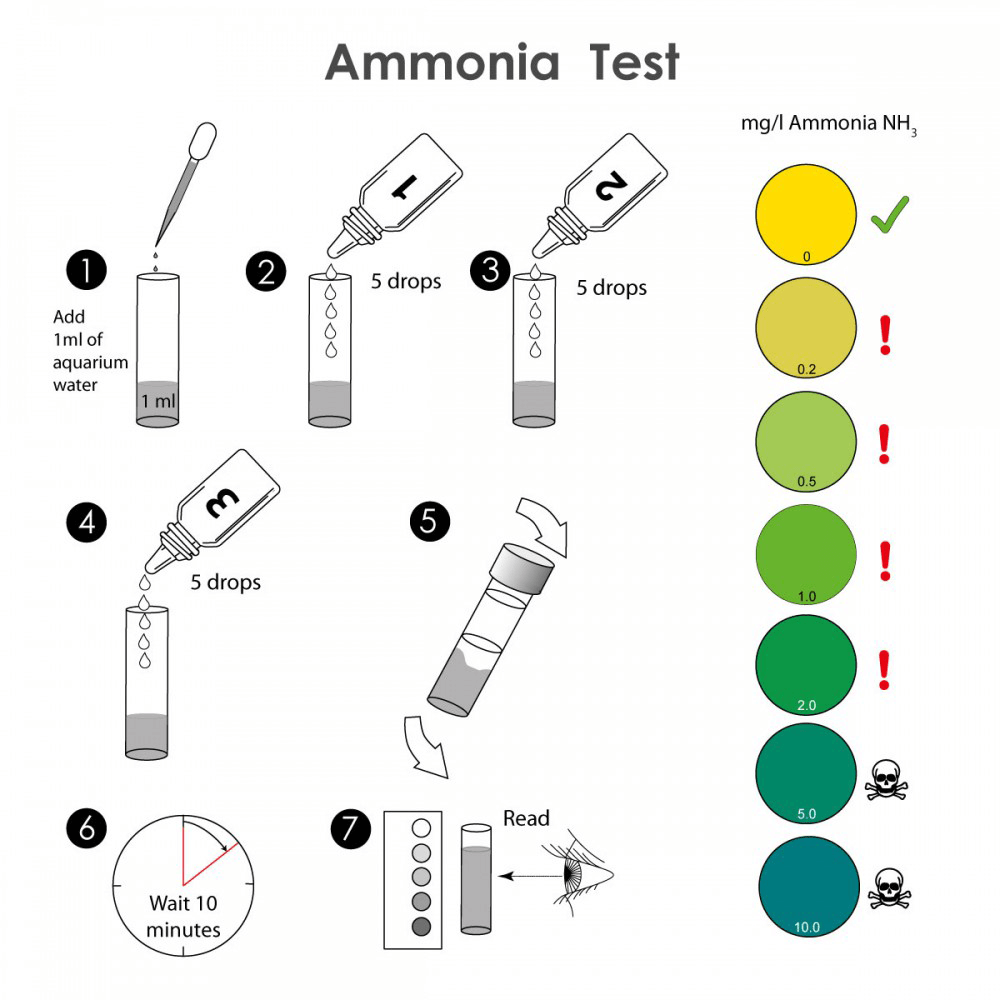NT Labs
NT Labs Marine Lab Ammonia Test
NT Labs Marine Lab Ammonia Test
Couldn't load pickup availability
Most ammonia generated in an aquarium is the result of the digestion of proteins by fish and other aquarium animals. Ammonia can also be released by the bacterial breakdown of excess food and other organic matter.
It is extremely toxic to fish and invertebrates, especially in a marine aquarium due to the higher pH found in saltwater. Ammonia is broken down into nitrite by the beneficial bacteria in your aquarium filter or live rock and then subsequently into relatively harmless nitrate.
Low concentration of ammonia can cause respiratory and skin irritation to fish, while greater concentrations can lead to damage and ultimately death. Toxic ammonia can build up in aquariums where there are insufficient nitrifying bacteria to process the waste from the fish. This situation can commonly arise in new aquariums, when new fish are added, when the filter bacteria has been disrupted (e.g. during cleaning), or during accidental mis-dosing of aquarium medications.
Ammonia should be kept at 0 mg/l at all times. Any positive ammonia reading likely indicates a problem with the aquarium and should be addressed.
If any ammonia is detected in your aquarium, use water changes to immediately dilute ammonia. Ensure that there is no uneaten food or decaying matter in the aquarium.
How to test for Ammonia:
- Use the 1 ml pipette provided to measure 1 ml of water to be tested into the test tube.
- Add 5 drops of Ammonia-1 reagent.
- Add 5 drops of Ammonia-2 reagent.
- Add 5 drops of Ammonia-3 reagent.
- Cap the test tube and shake well to mix.
- Wait for 10 minutes for the colour to develop.
- Once the 10 minutes has elapsed, view the test tube from the side and compare to the colour chart to determine the amount of ammonia present in the water.






